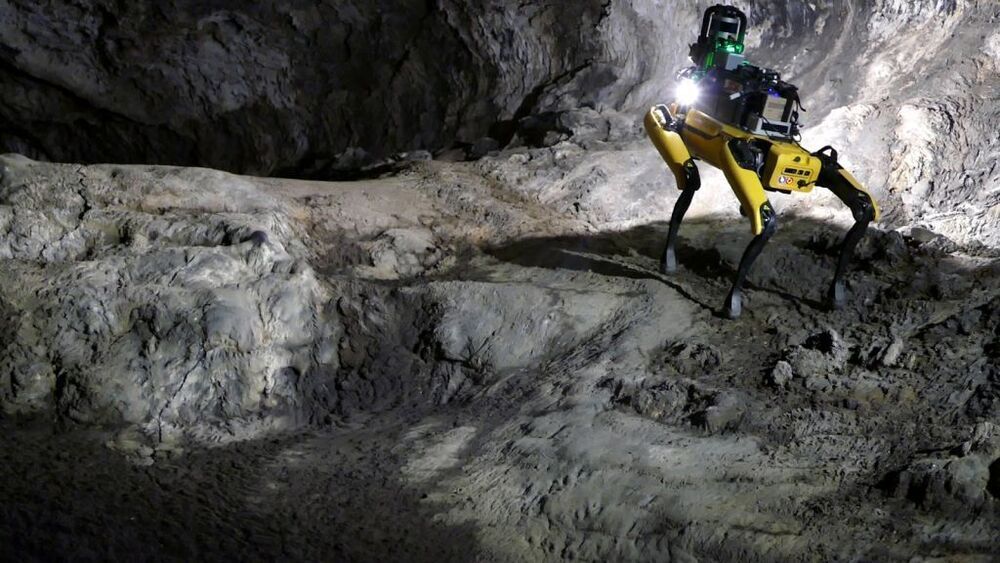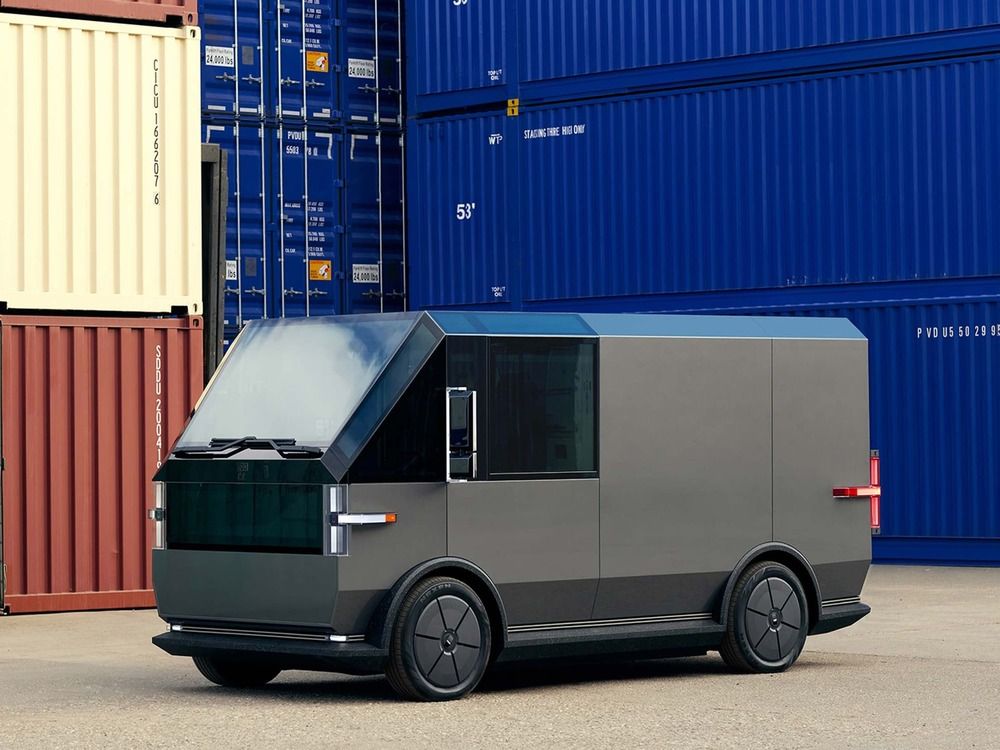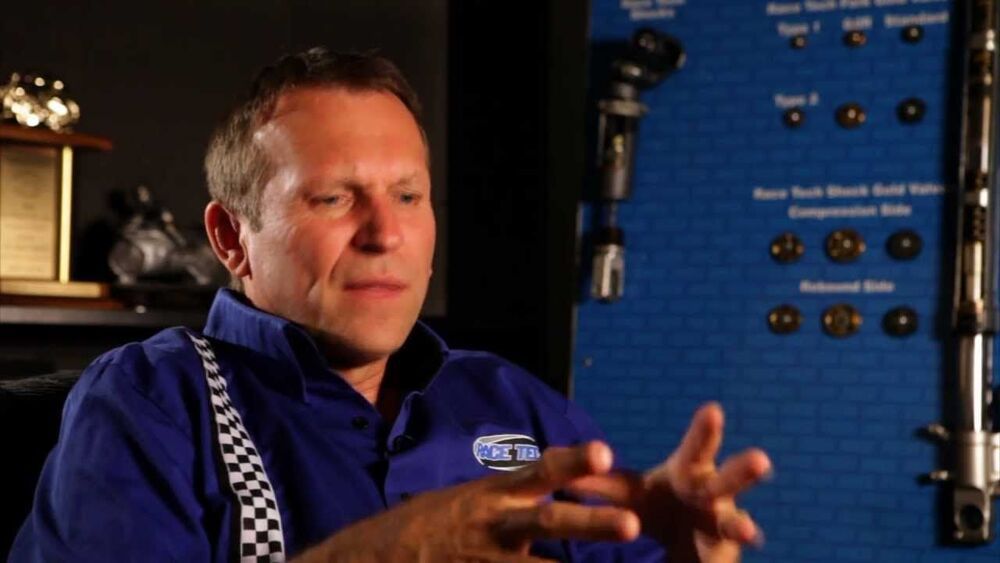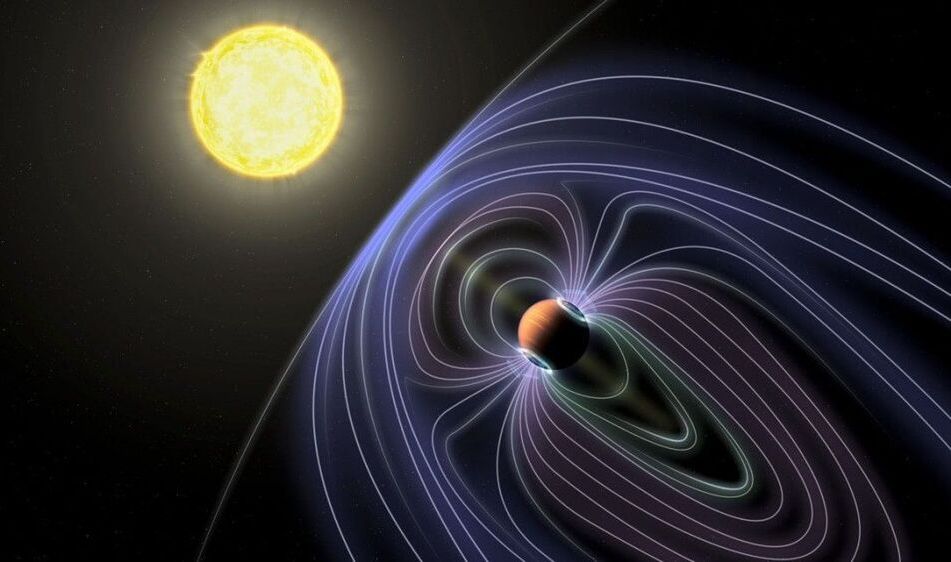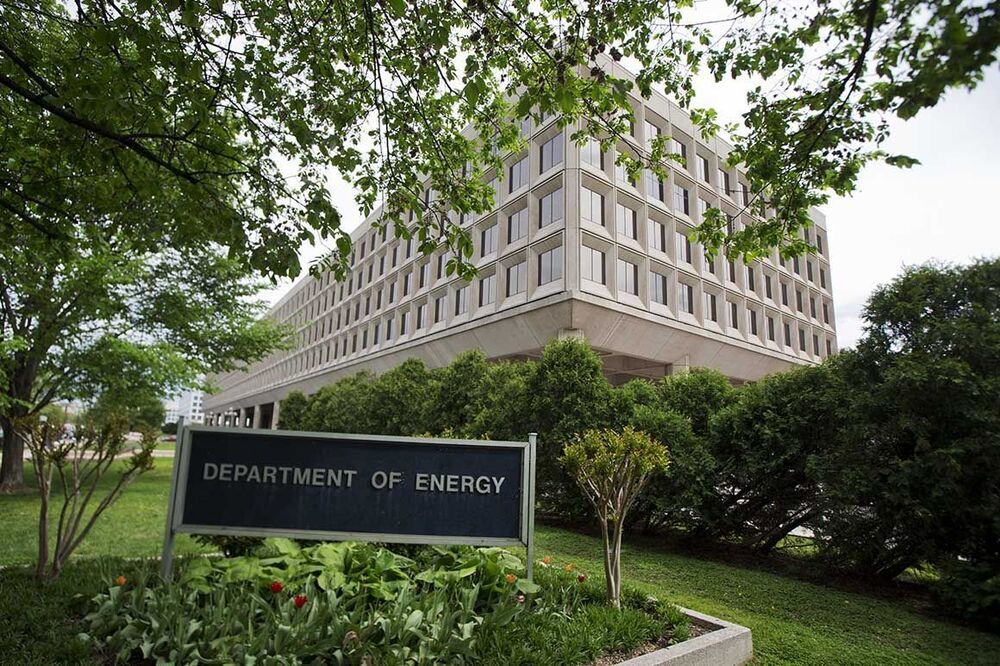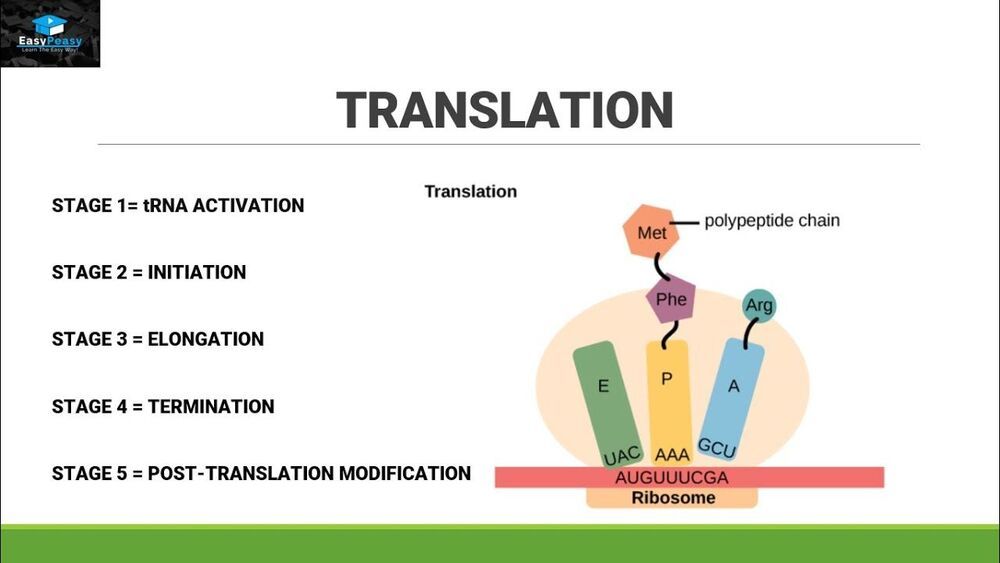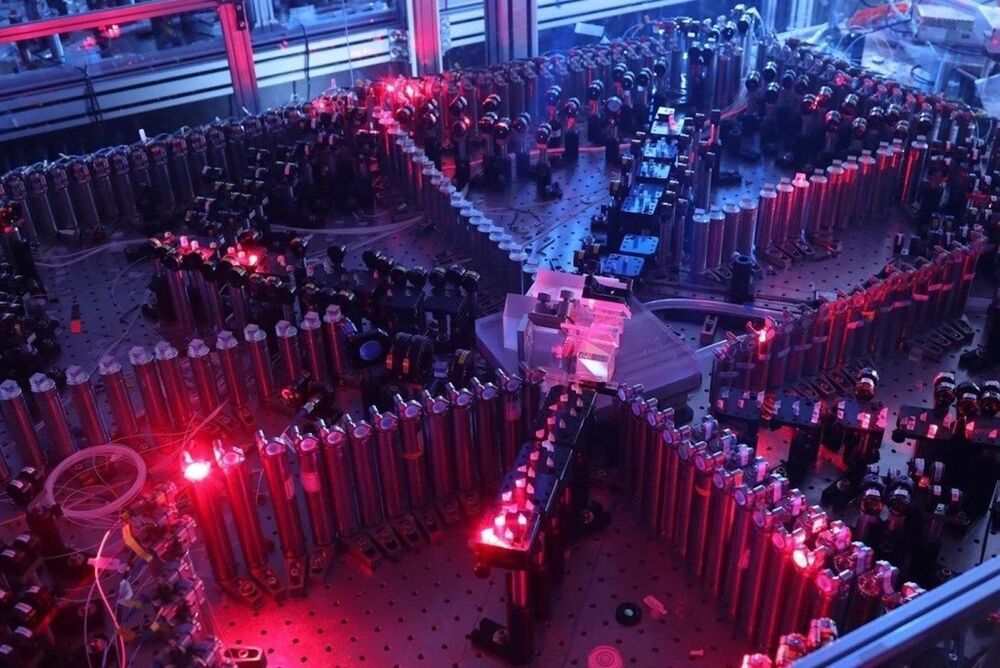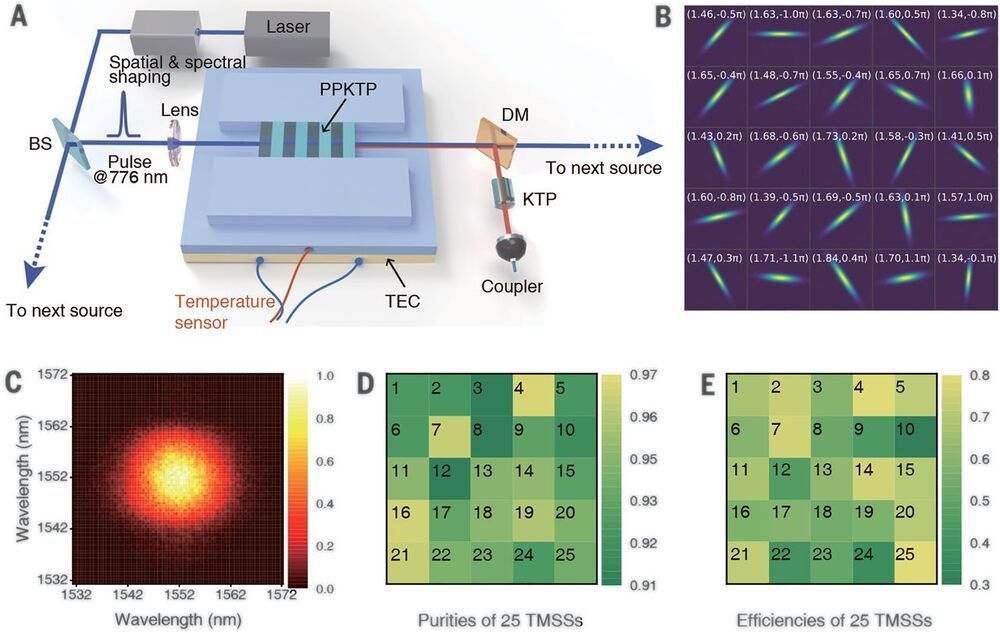
Quantum computational advantage or supremacy is a long-anticipated milestone toward practical quantum computers. Recent work claimed to have reached this point, but subsequent work managed to speed up the classical simulation and pointed toward a sample size–dependent loophole. Quantum computational advantage, rather than being a one-shot experimental proof, will be the result of a long-term competition between quantum devices and classical simulation. Zhong et al. sent 50 indistinguishable single-mode squeezed states into a 100-mode ultralow-loss interferometer and sampled the output using 100 high-efficiency single-photon detectors. By obtaining up to 76-photon coincidence, yielding a state space dimension of about 1030, they measured a sampling rate that is about 1014-fold faster than using state-of-the-art classical simulation strategies and supercomputers.
Science, this issue p. 1460
Quantum computers promise to perform certain tasks that are believed to be intractable to classical computers. Boson sampling is such a task and is considered a strong candidate to demonstrate the quantum computational advantage. We performed Gaussian boson sampling by sending 50 indistinguishable single-mode squeezed states into a 100-mode ultralow-loss interferometer with full connectivity and random matrix—the whole optical setup is phase-locked—and sampling the output using 100 high-efficiency single-photon detectors. The obtained samples were validated against plausible hypotheses exploiting thermal states, distinguishable photons, and uniform distribution. The photonic quantum computer, Jiuzhang, generates up to 76 output photon clicks, which yields an output state-space dimension of 1030 and a sampling rate that is faster than using the state-of-the-art simulation strategy and supercomputers by a factor of ~1014.
